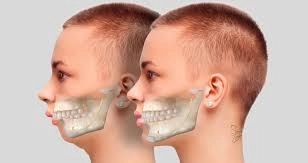
Correcting Congenital Jaw Deformities – Dr. Aliaa Ahmed Habib Explains Modern Surgical Steps
Published on: 2025-06-24 | Written by: Dr. Alia Ahmed Habib, Consultant Oral
Dr. Aliaa Ahmed Habib, Consultant of Oral and Maxillofacial Surgery, emphasizes that congenital jaw deformities are not merely cosmetic issues—they can significantly impact breathing, speech, eating, and self-confidence. Thanks to advancements in surgical techniques, these deformities can now be corrected with safe and lasting results.
In this article, Dr. Aliaa Ahmed Habib explains the modern surgical steps used to treat jaw deformities and why surgery is often the best solution.
What Are Congenital Jaw Deformities?
These include conditions such as:
-
Prominent upper or lower jaw
-
Undergrowth or underdevelopment of one jaw
-
Misalignment between the jaws causing bite issues
-
Jaw asymmetry or deviation to one side
Dr. Aliaa Ahmed Habib explains that such cases may result in difficulties with chewing, speaking, and even breathing during sleep.
When Is Surgery Recommended?
Dr. Aliaa Ahmed Habib recommends surgery in cases where:
-
The deformity affects vital functions like chewing or speaking
-
Orthodontic treatment alone is not sufficient
-
Facial aesthetics and harmony are significantly affected
-
The patient experiences emotional or psychological distress due to facial appearance
Modern Surgical Steps for Jaw Correction:
-
Comprehensive Evaluation and Imaging
Advanced 3D imaging and diagnostic tools are used to assess the exact degree of deformity. -
Coordinated Treatment Plan with Orthodontist
Dr. Aliaa Ahmed Habib works closely with an orthodontist to plan the surgery and post-surgical treatment for optimal results. -
Corrective Jaw Surgery
The position of the upper, lower, or both jaws is surgically adjusted using precise fixation techniques and titanium plates. -
Recovery and Follow-Up
Recovery typically takes 2–4 weeks. Orthodontic treatment may continue afterward to perfect bite alignment.
Is the Surgery Safe?
Dr. Aliaa Ahmed Habib assures that jaw surgeries today are safer than ever, thanks to digital planning, modern anesthesia, and advanced surgical fixation tools. These improvements reduce complication risks and speed up healing.
Conclusion:
Correcting congenital jaw deformities is not just about appearance—it’s about restoring the proper function of the mouth and face. Dr. Aliaa Ahmed Habib encourages individuals with jaw growth issues to consult a specialized surgeon and not to delay treatment, especially if it’s affecting their daily life.

